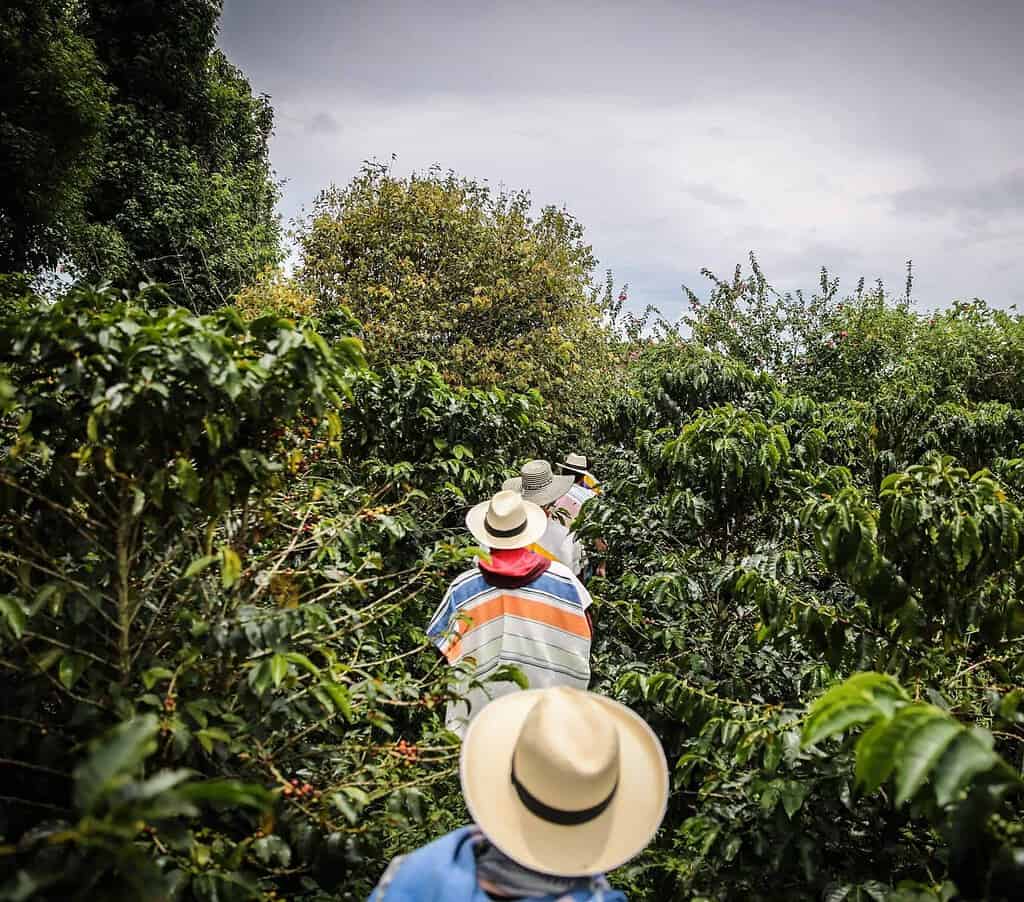Investment as a Tool for Peace in Colombia
- Blog
- Sustainable agriculture
- Latin America

In the wake of Colombia’s 50-year armed conflict, Acumen is building a network of entrepreneurs, Fellows and Partners working together to support the country’s transition to peace.
When Acumen first decided to expand to Colombia in 2013 with start-up funding from The Oak Foundation, Latin America Director Virgilio Barco’s first step was to listen: to understand the challenges of poverty and inequality in the region and identify where patient capital could deliver the most impact. What Virgilio heard was that opportunity had bypassed the rural areas of Colombia, such as those most severely affected by the country’s conflict. He heard that, without access to markets, rural farmers were making little for their crops—in some cases, such as when global commodity prices dropped, even less than what it cost to grow them. He heard that, under stress and without hope for alternatives, many rural Colombians had turned away from their traditional livelihoods in farming and towards lucrative yet risky activities such as drug cultivation and illegal mining—activities that had financed the armed conflict. Underpinning it all, he heard that many years of violence had broken down trust in rural communities, making it difficult for them to rebuild on their own.
Having heard all this, Virgilio developed a strategy to use patient capital to help rebuild peace and restore livelihoods in Colombia’s rural communities, especially in post-conflict areas. In this high-risk environment, Virgilio understood that Acumen’s role was to prove that social enterprises could offer alternative opportunities for farmers to increase their incomes and to remove themselves from the trades financing the armed conflict. So Virgilio and his team partnered with the United States Agency for International Development (USAID) to create the Investing for Peace Fund, focused on investing in agriculture businesses in post-conflict areas that would connect farmers to markets and help them access fair prices for their yields—enabling them to raise their incomes and leave behind illegal activities.
Colombia’s coffee farmers especially need access to fair prices. While end customers may buy a latte for $6 or more, the farmers who grow the beans earn less than $2.50 per day. Azahar Coffee is rebalancing this equation, turning coffee farming into a viable livelihood for Colombia’s nearly 600,000 coffee producers. Azahar offers over 3,000 Colombian coffee farmers training and inputs to produce the highest-quality coffee. The company then purchases these farmers’ coffee at a fixed price ensuring that, no matter how the global market for coffee prices fluctuate, Azahar’s farmers will always make the same steady income for the coffee beans they produce. As a result, Azahar’s farmers can make more than two times the global price for their coffee, increasing their incomes by as much as 70 percent. The company has also built trust with coffee farmers because of its commitment to radical transparency: revealing the true costs behind their pricing—from what farmers are paid to the company’s costs—so farmers know what percentage of the coffee’s value they are getting. Azahar has made coffee farming a feasible way to make a living for farmers like Carlos: ”When Azahar arrived it was something incredible, because our coffee sold better. Now, I don’t have to worry about the daily price, I only have to worry about having high-quality coffee.”
Since its initial investment in 2016, Acumen has accompanied Azahar in its growth through strategic guidance at the Board level, including helping the company increase its impact through Lean DataSM surveys and grow its sales within Colombia by setting up two Azahar coffee shops in Bogotá. This year, Acumen introduced Azahar to a funder for its forthcoming Sustainable Coffee Buyer’s Guide—a project to extend the company’s influence by encouraging roasters around the world to buy coffee at prices that ensure farmers make a profit.
To date, Virgilio and his team have invested in nine other agriculture businesses, from organic produce aggregators raising farmers’ incomes for their harvests to chocolate producers sourcing cacao from indigenous communities. Acumen’s approach of using patient capital to support innovative social enterprises like Azahar are proving the role that new, transparent business models can play in restoring peace and stability in Colombia.
With the signing of a peace agreement between the Colombian government and the Revolutionary Armed Forces of Colombia (FARC) guerillas in 2016, even more new opportunities for change are beginning to appear. However, as Acumen has learned in its other markets, so Virgilio and his team learned that business models alone cannot achieve social change. Alongside business models, Virgilio knew it would be essential to cultivate a community of leaders who could expand the chain of peace in Colombia even further.
In 2019, Acumen launched its inaugural cohort of Colombia Fellows, a diverse group of leaders with a collective vision to repair the social fabric of their communities. This includes Fellows like Andrés Felipe Gonzalez, a young urban rapper who was once part of a violent gang near Cali and went on to found Prisioneros de Esperanza, an organization using urban music to teach teens nonviolence, or Clara Inés Hoyos who founded Cimientos del Hogar, an organization enabling women who were victims of the conflict to earn a living by growing and selling aromatic herbs.
Today, Acumen Latin America has built an interconnected web of role models like Andrés and Clara and business models like Azahar Coffee that are reweaving the fabric of peace in Colombia. We know there’s never a simple, immediate solution to pervasive problems, but we believe that Virgilio and his team’s approach of listening combined with Acumen’s long-term patient capital and leadership development program has the greatest chance of success.
This excerpt on Acumen’s strategy in Colombia comes from our 2019 Annual Report.